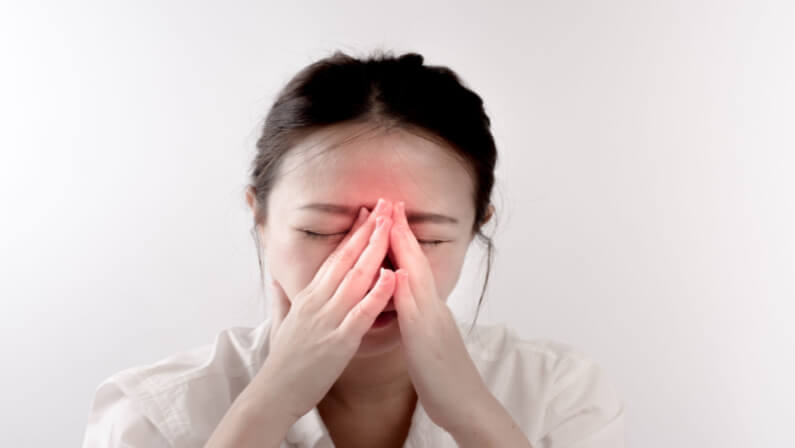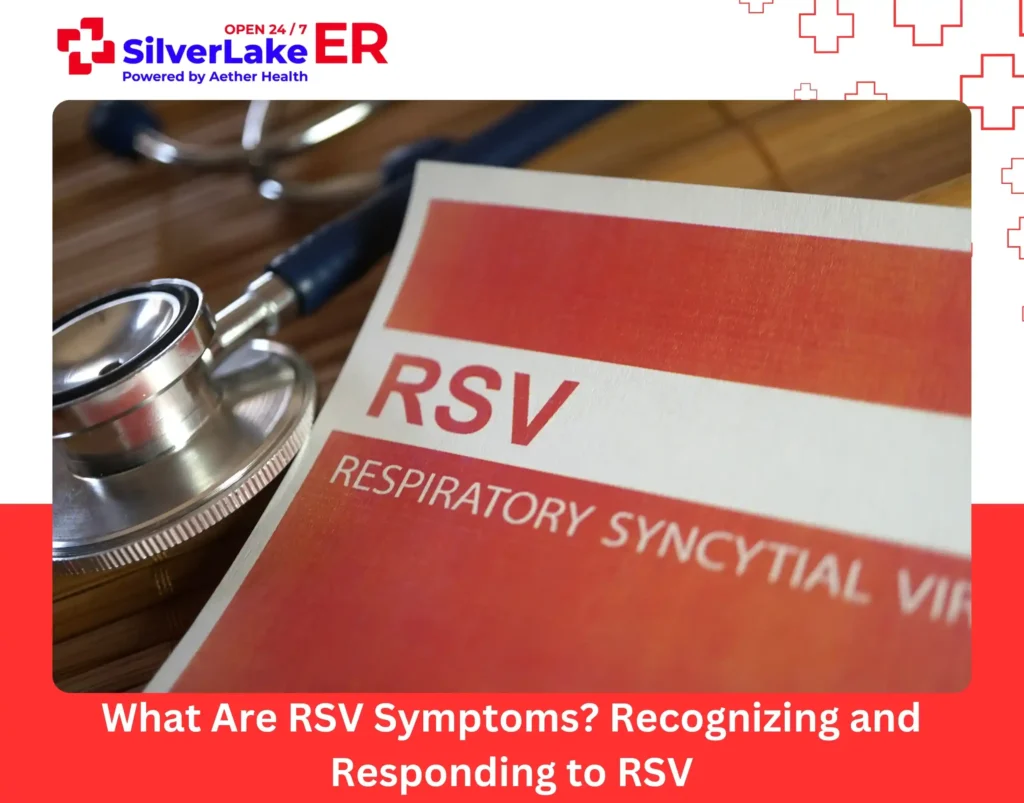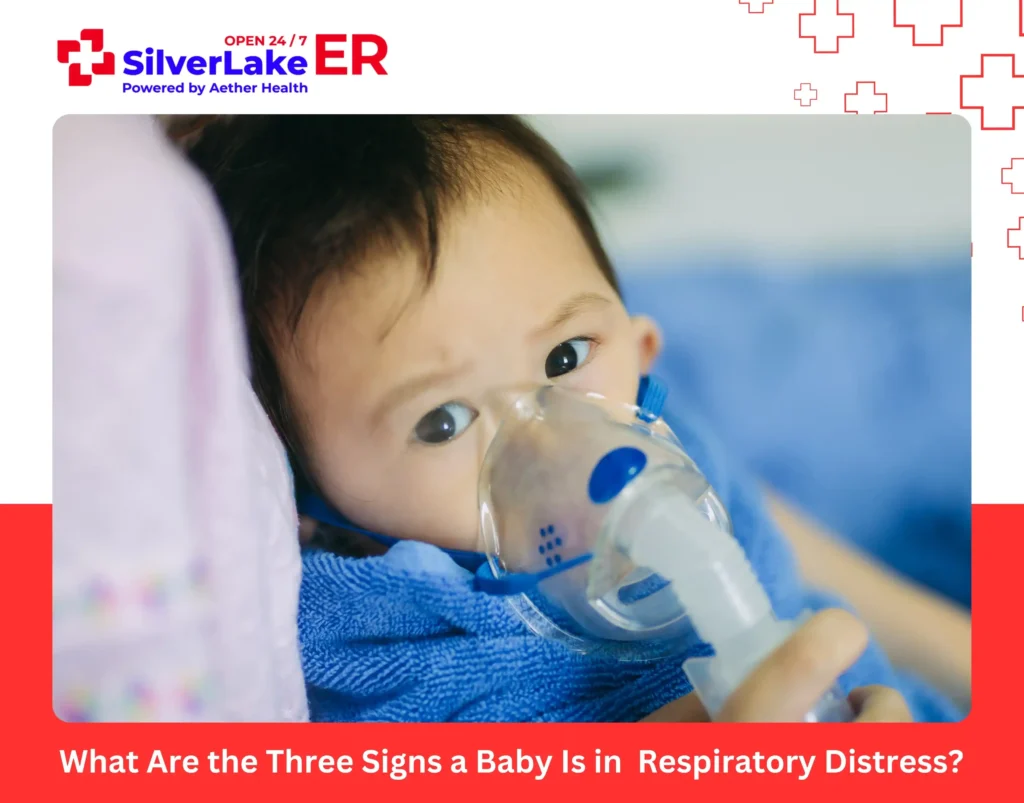Do you have a sinus headache? If so, you’re not alone. Many people suffer from this type of headache, which is caused by inflammation and congestion in the sinuses. Sinus headaches can be quite painful and debilitating. In this blog post, we will discuss 9 home remedies that can help provide relief from a sinus headache.
What is a sinus headache?
A sinus headache is a type of headache caused by inflammation or congestion in the sinuses, typically resulting in intense facial pain and pressure. It is often accompanied by other symptoms such as nasal congestion, facial tenderness, fever, fatigue, and a thick yellow-green discharge from the nose.
Sinus headaches occur when the mucous membranes that line the sinuses become inflamed and cause pressure, resulting in pain in the forehead, cheeks, or around the eyes.
How do I know if my headache is a migraine or a sinus headache?
Migraines and sinus headaches share a few common symptoms, such as facial pain and pressure. However, there are some key differences. Migraines typically occur on one side of the head, while sinus headaches tend to be felt on both sides. Migraines are also often accompanied by light sensitivity and nausea, while sinus headaches usually aren’t.
Sinus Headache Symptoms
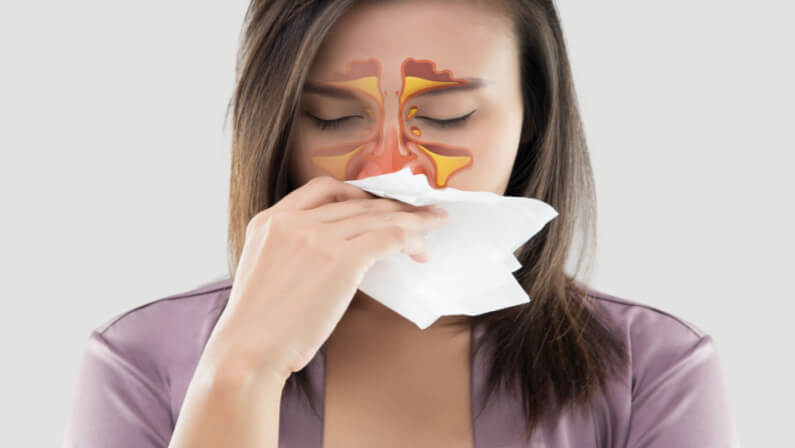
There are a number of signs that indicate a sinus headache.
These include:
- Pressure in the forehead, temples, or cheeks
- Pain around the eyes or on one side of the head
- Nasal congestion or discharge
- Fever
- Fatigue
- Facial tenderness
For alarming and persistent symptoms, visit Aether Health – SilverLake ER.
What causes sinus headaches?
Sinus headaches can be caused in a variety of ways, such as:
- Allergies
- Cold or flu
- Nasal polyps
- Sinus infection
- Structural problems in the nose
What does a sinus headache feel like?
Sinus headaches can be quite uncomfortable and painful. The pain is often felt in the forehead, nose, or cheeks and typically radiates to the eyes. It can also cause a feeling of pressure around the face and head as if something is pushing down on it. In addition to this, sinus headaches may cause congestion or a thick yellow-green discharge from the nose.
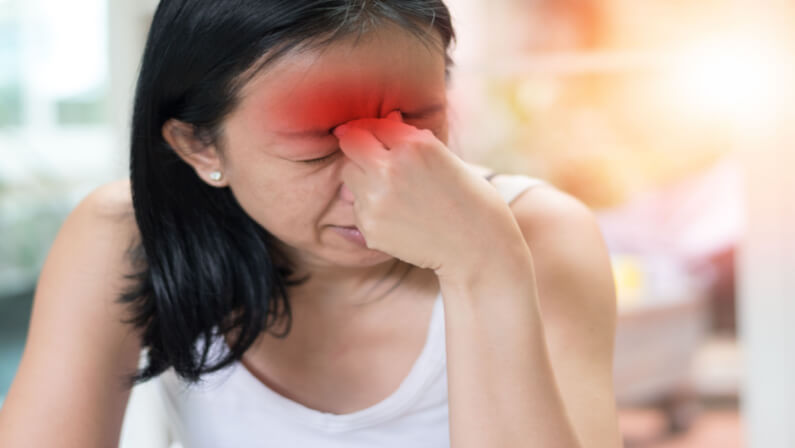
Can you have a sinus headache without being congested?
Yes, it is possible to have a sinus headache without being congested. This type of headache is known as a ‘non-congestive sinus headache’. It is usually caused by a structural problem within the sinuses, such as a deviated septum or swollen nasal tissue.
How are sinus headaches diagnosed?
Sinus headaches can be difficult to diagnose because their symptoms are similar to those of other types of headaches. To make an accurate diagnosis, your doctor will take a complete medical history and perform a physical examination.
During the physical exam, your doctor will look for signs of infection or inflammation in the sinuses, as well as any structural problems that could be causing your symptoms.
How to get rid of a sinus headache instantly?
Fortunately, there are several remedies and medications that can provide relief from sinus headaches. Here are some of them:
Home remedies
Try these nine home remedies to relieve yourself from a sinus headache.
Steam
Steam therapy is a simple and effective home remedy for sinus headaches. Steam helps to loosen the mucus in your sinuses, which can help clear out congestion and reduce pain.
How to use steam therapy:
- Fill a bowl with hot water and add some essential oils, such as eucalyptus or peppermint oil.
- Place your face over the bowl and cover your head with a towel to trap in the steam.
- Inhale deeply for 10-15 minutes.
Saline flush
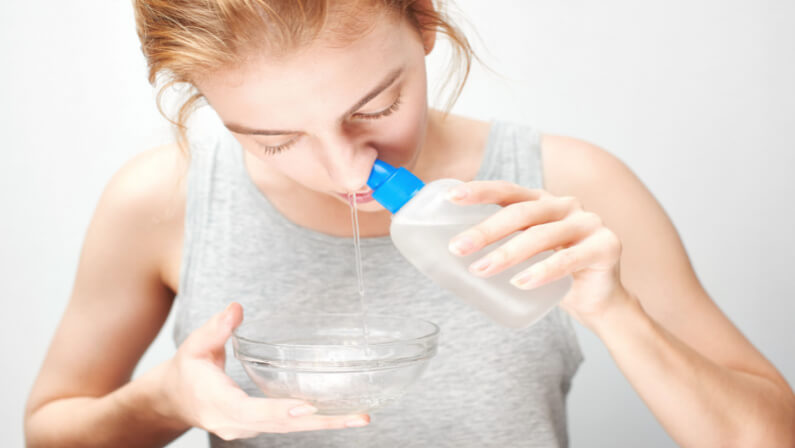
Saline flush is a popular home remedy for sinus headaches because it helps to reduce inflammation and clear out mucus. It involves flushing the nasal passages with a saline solution, which is made of salt and water. This simple procedure helps to thin mucus, reduce swelling, and flush out irritants.
To do a saline flush, mix 1/4 teaspoon of non-iodized salt with 8 ounces of warm water. Use a bulb syringe or neti pot to irrigate your nasal passages with the solution.
Hot and cold compress
Applying a hot or cold compress can also provide relief from sinus headaches. A hot compress helps to open the sinuses and reduce pain, while a cold compress reduces inflammation and numbs the area around your eyes.
To use this remedy, soak a cloth in warm or cold water and apply it to your forehead for 10-15 minutes.
Hydration
Staying hydrated is important for overall health, but it can also help relieve sinus headaches. Drinking plenty of fluids helps to thin mucus and keep your nasal passages clear. It is best to drink warm liquids, such as herbal tea or soup, which can help open up your sinuses.
Rest
Resting is an important part of sinus headache relief, as it helps to reduce stress and relax the body. When your body is at rest, it helps to decrease inflammation in the sinuses and allows the mucus to move more freely. This can provide considerable relief from sinus pain and discomfort.
In addition to this, it is important to get enough sleep each night. This will help your body recharge and reduce the frequency of sinus headaches.
Essential oils
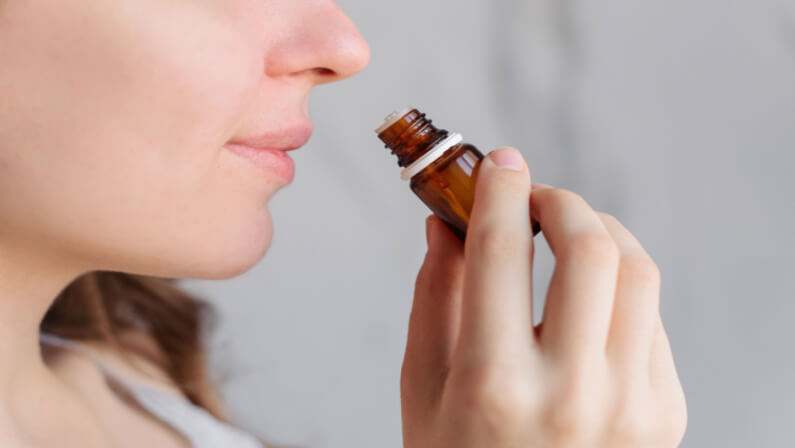
Essential oils such as eucalyptus, peppermint, and lavender oil can also provide relief from sinus headaches. These oils have anti-inflammatory and decongestant properties that can help open up the sinuses and reduce pain.
To use this remedy, add a few drops of essential oil to a bowl of hot water and inhale the vapors for 10-15 minutes. You can also massage some diluted essential oil onto your temples for relief from headaches.
Elevation
Elevation can be an effective remedy for sinus headaches. Elevating your head helps to reduce the pressure in your sinuses and allows the mucous to drain more easily. This can provide quick relief from sinus pain and discomfort.
You can elevate your head by sleeping with two or three pillows propped behind your head, or by lying down with your head on a couple of pillows.
Relaxation techniques
Relaxation techniques are an important part of sinus headache relief. Stress can cause the muscles in your head, neck, and face to contract, which can lead to sinus pain and headaches.
To reduce stress, practice relaxation techniques such as deep breathing, progressive muscle relaxation, and mindfulness meditation. These activities can help relax the body and provide relief from sinus headaches.
Exercise
Exercise is an important part of taking care of your sinus headaches. Regular physical activity helps to reduce stress, improve circulation, and promote better sinus health. Exercise can also help to reduce inflammation in the sinuses and clear out mucus. Aerobic activities such as running, swimming, and biking are especially beneficial for reducing sinus pain and discomfort.
Medications
The following are the medications options:
OTC options
OTC (over-the-counter) medications can provide relief from sinus headaches and other sinus symptoms. Popular OTC options include decongestants, antihistamines, and pain relievers.
Many of these medications are available in liquid or pill form, so you can find the one that works best for you. However, it is important to follow the instructions on the label and talk to your doctor before taking any medication.
Prescription medications
Prescription medications are typically used for more severe sinus headaches. These medications can help reduce inflammation and open up the sinuses, allowing mucus to drain more easily and providing relief from pain and discomfort. Common prescription medications used for sinus headaches include corticosteroids, nasal sprays, and antibiotics.
Alternative treatments
Alternative treatments for sinus headaches include acupuncture, chiropractic care, and aromatherapy.
Acupuncture

This is a form of traditional Chinese medicine that involves the insertion of thin needles into specific points on the body. Acupuncture helps to stimulate the body’s natural healing response and reduce inflammation in the sinuses.
Chiropractic care
This is the practice of manipulating the spine and other joints to improve alignment and reduce pain.
Aromatherapy
This involves the use of essential oils to stimulate healing and reduce sinus pain.
What are the risk factors for sinus headaches?
Common risk factors for sinus headaches include allergies, nasal congestion, and environmental irritants. Allergies to pollen, dust, smoke and other airborne particles can cause inflammation in the sinuses and lead to sinus headaches. Nasal congestion from colds, flu, or allergies can also lead to sinus pain and discomfort.
Furthermore, exposure to environmental irritants such as smoke, fumes, and strong odors can trigger sinus headaches. Practicing good hygiene, avoiding allergens and irritants, and managing allergies can help reduce the risk of sinus headaches.
How can I prevent a sinus headache?
You can prevent sinus headaches by following these tips:
Avoid triggers
The best way to prevent sinus headaches is to avoid the triggers that can cause them. Allergens, irritants, and hormones can all cause inflammation in the sinuses and lead to pain and discomfort.
To reduce your risk of sinus headaches, avoid triggers such as smoke, strong odors, allergens, and colds. Managing allergies with medications or immunotherapy can also help reduce the risk of sinus headaches caused by allergies.
Exercise regularly
Regular exercise can be an effective way to prevent and relieve sinus headaches. Exercise helps improve circulation, reduce inflammation, and boost the body’s natural healing response. It also helps to reduce stress, which is a common trigger for sinus headaches.
Aerobic activities such as running, swimming, and biking are especially beneficial for sinus headaches. In addition, yoga and other relaxation techniques can help reduce stress and prevent sinus headaches.
Reduce the effects of estrogen
Estrogen is a hormone that is essential for many bodily functions. However, it can also trigger inflammation in the sinuses and lead to sinus headaches. To reduce the risk of sinus headaches caused by estrogen, it is important to take steps to balance the hormone levels in your body. This can include taking birth control pills, eating a balanced diet, and exercising regularly.
Additionally, avoiding alcohol, caffeine, and tobacco can help keep hormones in check and reduce the risk of sinus headaches.
What are the complications of a sinus headache?
Complications of sinus headaches can vary depending on how severe the headache is and how long it lasts. In most cases, sinus headaches are not life-threatening. However, complications can include chronic sinusitis, infections, vision problems, and hearing loss.
If a sinus headache is left untreated for an extended period of time, it can lead to long-term damage to the sinuses and surrounding areas. Moreover, some people may experience nausea or vomiting due to intense headaches.
Treat Sinus Headaches

Sinus headaches can be painful, but there are many home remedies that can provide quick relief. Try these 9 home remedies to get rid of your sinus headache. Moreover, you can reduce the risk of sinus headaches by avoiding triggers, exercising regularly, and balancing hormones.
If left untreated, sinus headaches can lead to complications such as chronic sinusitis or infections. With the right treatment and prevention strategies, you can help reduce the frequency and severity of sinus headaches. For medical emergencies, visit Aether Health – SilverLake ER.

